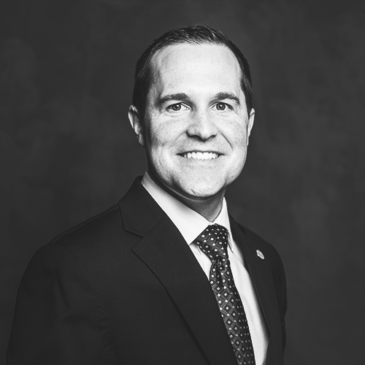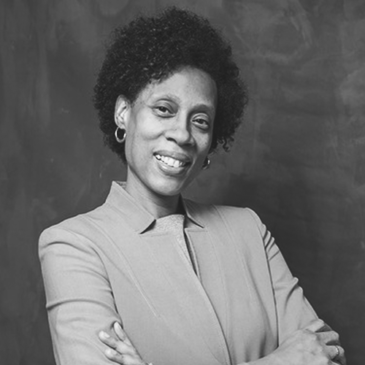Andrew Quagliata is a Senior Lecturer in Management Communication at Cornell University’s Nolan School of Hotel Administration. Dr. Quagliata teaches courses in business writing, persuasive communication, entrepreneurial communication, and real estate communication. He engages with industry by speaking and delivering workshops on topics related to interpersonal communication, presentation skills, workplace writing, relationship building, storytelling, and influence. Professor Quagliata holds a Ph.D. in Organizational Communication from the University at Buffalo. Prior to his arrival at Cornell, he held professional positions in finance and higher education.

Persuasive
CommunicationCornell Certificate Program
Overview and Courses
In business and in life, one of the most crucial skills you can develop is the art of persuasion. When communicating your ideas to others, practicing how to craft a succinct and persuasive message can allow you to push projects forward, gain buy-in from stakeholders, and advance in your career.
In this certificate program, you will investigate a variety of approaches to communicate effectively with different audiences. By assessing the needs of your audience and implementing this audience analysis along with some key techniques and strategies, you will be better positioned to craft the ideal message and delivery for your persuasion goals. Whether you are preparing a presentation for a group of decision makers or speaking informally to a few colleagues, you can use the recommended best practices in this program to achieve better results.
For the best experience in this program it is recommended to take these courses in the order that they appear.
This program includes a year of free access to Symposium! These events feature several days of live, highly participatory virtual Zoom sessions with Cornell faculty and experts to explore the most pressing leadership topics. Symposium events are held several times throughout the year. Once enrolled in your program, you will receive information about upcoming events.
Throughout the year, you may participate in as many sessions as you wish. Attending Symposium sessions is not required to successfully complete the certificate program.
Course list
Success in business often depends on the ability to influence others and gain their support for your objectives, but it takes more than charisma to win over your leaders or colleagues. Persuasive writing can help you present your case in a way that will secure critical stakeholder support.
This course will help you gain and strengthen your persuasive writing skills. You will be guided through the process of narrowing your objective to a very specific "ask," analyzing your audience to know how to appeal to their sense of reason as well as their emotions, and then building the evidence that you will use to present your case.
You will examine how to create a one-page proposal, step by step, and delve into basic design principles to maximize your writing's impact. Since electronic communication is so predominant in today's business world, you will also discover how to transform your proposal into an email. Through this course, you'll be on your way to becoming a stronger writer and business professional.
Symposium sessions feature three days of live, highly interactive virtual Zoom sessions that will explore today’s most pressing topics. The Leadership Symposium offers you a unique opportunity to engage in real-time conversations with peers and experts from the Cornell community and beyond. Using the context of your own experiences, you will take part in reflections and small-group discussions to build on the skills and knowledge you have gained from your courses.
Join us for the next Symposium in which we’ll discuss the ways that leaders across industries have continued engaging their teams over the past two years while pivoting in strategic ways. You will support your coursework by applying your knowledge and experiences to relevant topics for leaders. Throughout this Symposium, you will examine different areas of leadership, including innovation, strategy, and engagement. By participating in relevant and engaging discussions, you will discover a variety of perspectives and build connections with your fellow participants from various industries.
Upcoming Symposium: June 4-6, 2024 from 11am – 1pm ET
All sessions are held on Zoom.
Future dates are subject to change. You may participate in as many sessions as you wish. Attending Symposium sessions is not required to successfully complete any certificate program. Once enrolled in your courses, you will receive information about upcoming events. Accessibility accommodations will be available upon request.
To be an effective leader, you must be able to articulate your thoughts and positions in a clear and concise manner.
Professor Angela Noble-Grange of Cornell University's Johnson Graduate School of Management draws on her own extensive experience as a speaker and communicator to guide students through the preparation and delivery process. She discusses how to identify the communication purpose and analyze your expected audience. She then shares how to formulate and rehearse your message, including how to pay attention to nonverbal communication.
To fine-tune these skills, this course includes interacting with fellow students. Students will participate in discussion forums and will record and share a video of a short presentation that serves as the course project. This provides rich opportunities for students to hone their communication and presentation skills in a practical way, and to learn from the efforts of others.
Participants in this certificate need a high-speed internet connection and a computer or device that can shoot digital videos with reasonable quality. The eCornell course delivery system provides the ability to record and upload videos, so you won't need special video software.Regardless of your industry, you have probably used PowerPoint, Google Slides, or Keynote to report significant data or ideas to others within your organization or beyond. Communicating this way is effective only if the presentation clearly articulates your points. The main points of the presentation, the visual aspects, and structure of your slides have to work in concert to convey your message. If the visuals are distracting, they run the risk of obscuring your insights. The pre-made templates provided by PowerPoint or other presentation tools may, in fact, be extremely visually distracting and inappropriate for many business contexts.
Creating your own template allows you to customize a briefing deck that specifically targets your audience and embodies visual integrity. And creating reading reports, or summaries, to send out to key stakeholders afterward or in place of a presentation, that adhere to the same design principles and best practices, allows you to present a visually appealing summary of your briefing deck.
So how do you create a professional briefing deck presentation as well as a standalone reading report that embodies visual integrity while integrating your key points and visual evidence? In this course from Andrew Quagliata, Senior Lecturer at the Cornell School of Hotel Administration, you will discover the visual design principles and content guidelines necessary to curate a professional briefing deck and reading deck report. You will develop your own briefing deck template using the visual standards that specifically target your audience and contexts. You will have the opportunity to develop two supporting briefing deck slides with appropriate message titles and visual evidence such as charts, graphs, photographs, or artistic elements. You will employ the structural components used in briefing decks to create a sound structure that guides your audience through your points seamlessly. Finally, you will convert your two briefing deck slides into a compelling and professional one-page report.
Mediation is widely used to settle disputes ranging from conflict between neighbors to conflict between nations. Though personal disagreements and international commerce don't share the same substance or consequences, the key procedural elements of the mediation process are the same for both, so workplace conflicts tend to take the same shape regardless of the industry or the size of the conflict.
In this course you will focus on the use of mediation in resolving organizational conflict where the manager or supervisor serves in the role of mediator. Even if you are not a trained mediator, you can draw on proven mediation techniques to help resolve workplace conflict in productive ways. During this course, you will closely examine a workplace scenario and practice properly setting expectations for mediation of that conflict. In each module, new information will be revealed that will ask you to adapt to the various needs of the disputing parties. Additionally, you will practice handling unforeseen emotional outbursts in a productive way and ultimately propose solutions that consider everyone's interests. Through creative work in examining the scenario and reflecting on how the lessons might apply to your own workplace conflicts, you will learn how to expertly prevent inevitable workplace conflicts from escalating.
From the moment you wake up to the time you go to sleep, you are engaging in impromptu communication that involves presenting ideas that need buy-in from your audience, whether it's seeking an extension on a work assignment or something as seemingly simple as deciding which parent should drive the kids to school. These are typical aspects of everyday life, but the reality is that the better prepared and adaptable you are for these situations, the more impactful you can be in your areas of communication, especially the workplace. You should obviously be rehearsed, but the more effortless and self-assured you come across while speaking, the more convincing you will be. This preparedness will give you the skills and confidence to succeed in various circumstances where effective communication is crucial.
In this course, you will be provided with a foundation in how improving your everyday communication can make your speaking skills more impactful. You will examine how to set up your message while considering its purpose, its context, and its audience. Keep in mind that this is not about speech writing but about crafting an unscripted message. You will then practice these skills in front of real people to test your ability to deliver your message in applicable environments. You'll explore what it's like to adapt that message to different surroundings and challenges. You will also develop emotional intelligence skills as you navigate how to better gauge your audience's reaction. You'll understand how applying these concepts will make your messages resonate, from a routine low-stakes situation to a formal pitch that affects your career goals.
Effectively using humor to win or gain influence can make you a more effective leader. In this course, you will identify situations and environments where utilizing humor may help you gain influence, and you will identify situations where you should avoid attempting humor. You will develop skills in constructing jokes that suit specific scenarios or audiences and deciding which medium is most effective for the joke. This course also provides strategies to course-correct when a joke doesn't land well so you can safely defuse any incidental tension a joke might cause if the delivery was inappropriate or ineffective. You will review examples and stories translated from ancient Roman philosophy on using humor for influence, and you will be guided to draw parallels between ancient and modern scenarios where humor can be applied.
You will be required to purchase a copy of "How to Tell a Joke: An Ancient Guide to the Art of Humor" by course author Mike Fontaine.
Humor can be utilized in many different situations and scenarios, but when it comes to professional settings or in the workplace, the rules and strategies for applying humor can vary. Using humor effectively requires a developed sense of both confidence and empathy to relate to others, enabling an individual to successfully manage and navigate everyday work relations and social dynamics. With these two pillars of confidence and empathy guiding your use of humor, you can empower both yourself and the people with whom you work.
In this course, you will analyze humor as applied specifically to the workplace, focusing on the social dynamics of your work peers, superiors, and subordinates. By utilizing these multiple lenses, you will strengthen your empathy and understanding of varying perspectives, gaining insight into how or why humor can help or hinder the attitudes of a team.
Negotiations occur in large and small ways across all industries and in our personal lives. So often, though, we lack the skills necessary to reach productive resolutions: Many negotiators focus on getting exactly what they want, but the negotiation usually ends with both parties feeling unsatisfied. What if both parties strove to create value for each other and find solutions that meet both of their needs?
In this course, you will discover the art of integrative negotiation, where the focus is on creating value and finding solutions that satisfy the needs of all parties involved. Using policy case studies, you will break past the surface-level statements of the other party and examine their true motivations and interests in order to build trust and foster long-term, productive relationships. You will distinguish between several different negotiation types so that you can customize an appropriate integrative approach based on the context and goals of each negotiation. Utilizing a strategic framework, you will position yourself to understand the impact of the objectives, biases, and external factors involved in your negotiation. Applying the tools from this course will enable professionals from all walks of life, including those making policy decisions in governments and business decisions in organizations, to gain value. By the end of this course, you will have new skills and strategies to apply to reach productive resolutions in your negotiations.
How It Works
- View slide #1
- View slide #2
- View slide #3
- View slide #4
- View slide #5
- View slide #6
- View slide #7
- View slide #8
- View slide #9
Faculty Authors
A graduate of the Johnson MBA program, Angela Noble-Grange is a Senior Lecturer of Management Communication at the Johnson Graduate School of Management. She teaches oral communication and management writing. Professor Noble-Grange’s interests include persuasive speaking and writing, as well as gender and race differences in message perception. She was the founding director of the Office for Women and Minorities in Business (now ODI) in 1999 and president of the Noble Economic Development Group, a micro-enterprise development consulting company, from June 1994 to January 1999. Professor Noble-Grange has served on numerous boards and is currently a trustee for Paul Smith’s College in the Adirondacks. She earned her B.A. in communication studies and Russian in 1983 and her MBA from Johnson in 1994.
Maria Wolfe is a senior lecturer of management communication at the Cornell Nolan School of Hotel Administration and teaches courses in business writing, persuasive communication, and oral delivery skills. She has over 25 years of teaching experience and has taught communication and management classes in the U.S. and internationally. Maria holds a PhD in rhetoric and professional communication and has won several teaching excellence awards. Most recently, her expertise led to two newly developed eCornell courses: “Impactful Unscripted Communication” and “Virtual Communication.”
Maria has worked with business professionals and industry groups to coach them in effective written and oral skills, powerful stage presence, overcoming speech anxiety, and leadership communications. In addition to her involvement in undergraduate and executive education programs, Maria serves as the Communication Center director at the Nolan School of Hotel Administration.
Peggy Odom-Reed is a Senior Lecturer in the marketing and management communication area at the School of Hotel Administration, where she teaches courses in management communication. She currently serves as the course chair for HADM3650: Persuasive Business Communication for Hospitality Leaders. She is also one of the founding faculty fellows of the Cornell Institute for Healthy Futures.
Dr. Odom-Reed earned a Ph.D. in organizational communication from the Department of Communication at Cornell University and has taught courses in leadership communication and organizational communication. Her research is focused on communication (social) networks, leadership, teams, and distributive collaborative work.
Dr. Odom-Reed has corporate experience in human resources at 3M Company. With her strategic knowledge in this field, she is certified as a Senior Professional in Human Resources (SPHR). She has also offered leadership and communication coaching at Cornell University.
With her commitment to improve diversity and inclusion at Cornell, Dr. Odom-Reed served on the Diversity and Inclusion Task Force for Cornell SC Johnson College of Business and participated as a member of the Campus Experience Subcommittee on the Presidential Task Force on Campus Climate. She currently serves as the Faculty Chair on the Undergraduate Admissions Committee at the School of Hotel Administration.
Ariel Avgar is an Associate Professor at the ILR School at Cornell University and Associate Director for Research and Student Engagement with the Scheinman Institute on Conflict Resolution. His research focuses on two primary areas within employment relations. First, he explores the role that employment relations factors play in the healthcare industry. As such, he examines the effects of a variety of workplace innovations, including new technology, delivery of care models, and innovative work practices, on patients, frontline employees, and organizational performance. Second, he studies conflict and its management in organizations with a focus on the strategic choices made by firms. He seeks to better understand the consequences of conflict for employees and employers. In addition, his research investigates the adoption and implementation of organizational level conflict management practices and systems. His research has been published in a number of journals including: Industrial and Labor Relations Review, Industrial Relations, British Journal of Industrial Relations, Ohio State Journal on Dispute Resolution, International Journal of Conflict Management, International Journal of Human Resource Management, Negotiation and Conflict Management Review, Advances in Industrial and Labor Relations, Health Services Research and Medical Care. He received the 2008 Best Dissertation Award and the 2013 John T. Dunlop Scholar Award, both from the Labor and Employment Relations Association and serves as the Editor-in-Chief for the association. His paper (with Eric J. Neuman) titled “Blind spots and mirages: A dyadic approach to the study of team conflict” received the 2012 Best Paper: New Directions Award from the Academy of Management Conflict Management Division. He received a Ph.D. in Industrial Relations from the ILR School at Cornell University and a B.A. in Sociology and an LL.B in Law from Hebrew University. He served as Law Clerk for the President of the Israeli National Labor Court before being admitted into the Israeli Bar. Prior to joining ILR, he was an associate professor (2014-2016) and assistant professor (2008-2014) at the School of Labor and Employment Relations at the University of Illinois at Urbana-Champaign.

Andrew Quagliata is a Senior Lecturer in Management Communication at Cornell University’s Nolan School of Hotel Administration. Dr. Quagliata teaches courses in business writing, persuasive communication, entrepreneurial communication, and real estate communication. He engages with industry by speaking and delivering workshops on topics related to interpersonal communication, presentation skills, workplace writing, relationship building, storytelling, and influence. Professor Quagliata holds a Ph.D. in Organizational Communication from the University at Buffalo. Prior to his arrival at Cornell, he held professional positions in finance and higher education.

A graduate of the Johnson MBA program, Angela Noble-Grange is a Senior Lecturer of Management Communication at the Johnson Graduate School of Management. She teaches oral communication and management writing. Professor Noble-Grange’s interests include persuasive speaking and writing, as well as gender and race differences in message perception. She was the founding director of the Office for Women and Minorities in Business (now ODI) in 1999 and president of the Noble Economic Development Group, a micro-enterprise development consulting company, from June 1994 to January 1999. Professor Noble-Grange has served on numerous boards and is currently a trustee for Paul Smith’s College in the Adirondacks. She earned her B.A. in communication studies and Russian in 1983 and her MBA from Johnson in 1994.

Maria Wolfe is a senior lecturer of management communication at the Cornell Nolan School of Hotel Administration and teaches courses in business writing, persuasive communication, and oral delivery skills. She has over 25 years of teaching experience and has taught communication and management classes in the U.S. and internationally. Maria holds a PhD in rhetoric and professional communication and has won several teaching excellence awards. Most recently, her expertise led to two newly developed eCornell courses: “Impactful Unscripted Communication” and “Virtual Communication.”
Maria has worked with business professionals and industry groups to coach them in effective written and oral skills, powerful stage presence, overcoming speech anxiety, and leadership communications. In addition to her involvement in undergraduate and executive education programs, Maria serves as the Communication Center director at the Nolan School of Hotel Administration.

Peggy Odom-Reed is a Senior Lecturer in the marketing and management communication area at the School of Hotel Administration, where she teaches courses in management communication. She currently serves as the course chair for HADM3650: Persuasive Business Communication for Hospitality Leaders. She is also one of the founding faculty fellows of the Cornell Institute for Healthy Futures.
Dr. Odom-Reed earned a Ph.D. in organizational communication from the Department of Communication at Cornell University and has taught courses in leadership communication and organizational communication. Her research is focused on communication (social) networks, leadership, teams, and distributive collaborative work.
Dr. Odom-Reed has corporate experience in human resources at 3M Company. With her strategic knowledge in this field, she is certified as a Senior Professional in Human Resources (SPHR). She has also offered leadership and communication coaching at Cornell University.
With her commitment to improve diversity and inclusion at Cornell, Dr. Odom-Reed served on the Diversity and Inclusion Task Force for Cornell SC Johnson College of Business and participated as a member of the Campus Experience Subcommittee on the Presidential Task Force on Campus Climate. She currently serves as the Faculty Chair on the Undergraduate Admissions Committee at the School of Hotel Administration.

Ariel Avgar is an Associate Professor at the ILR School at Cornell University and Associate Director for Research and Student Engagement with the Scheinman Institute on Conflict Resolution. His research focuses on two primary areas within employment relations. First, he explores the role that employment relations factors play in the healthcare industry. As such, he examines the effects of a variety of workplace innovations, including new technology, delivery of care models, and innovative work practices, on patients, frontline employees, and organizational performance. Second, he studies conflict and its management in organizations with a focus on the strategic choices made by firms. He seeks to better understand the consequences of conflict for employees and employers. In addition, his research investigates the adoption and implementation of organizational level conflict management practices and systems. His research has been published in a number of journals including: Industrial and Labor Relations Review, Industrial Relations, British Journal of Industrial Relations, Ohio State Journal on Dispute Resolution, International Journal of Conflict Management, International Journal of Human Resource Management, Negotiation and Conflict Management Review, Advances in Industrial and Labor Relations, Health Services Research and Medical Care. He received the 2008 Best Dissertation Award and the 2013 John T. Dunlop Scholar Award, both from the Labor and Employment Relations Association and serves as the Editor-in-Chief for the association. His paper (with Eric J. Neuman) titled “Blind spots and mirages: A dyadic approach to the study of team conflict” received the 2012 Best Paper: New Directions Award from the Academy of Management Conflict Management Division. He received a Ph.D. in Industrial Relations from the ILR School at Cornell University and a B.A. in Sociology and an LL.B in Law from Hebrew University. He served as Law Clerk for the President of the Israeli National Labor Court before being admitted into the Israeli Bar. Prior to joining ILR, he was an associate professor (2014-2016) and assistant professor (2008-2014) at the School of Labor and Employment Relations at the University of Illinois at Urbana-Champaign.
- View slide #1
- View slide #2
- View slide #3
- View slide #4
- View slide #5
Key Course Takeaways
- Convey ideas clearly and persuasively to achieve results, whether verbally or in writing
- Powerfully and succinctly deliver a specific message in an unscripted setting to gain influence in the workplace
- Effectively communicate your ideas through professional presentations and slide decks
- Deliver a message with maximum effectiveness
- Select an appropriate mediation style for resolving a conflict

Download a Brochure
Not ready to enroll but want to learn more? Download the certificate brochure to review program details.
What You'll Earn
- Persuasive Communication Certificate from Cornell SC Johnson College of Business
- 60 Professional Development Hours (6 CEUs)
- 0-10 Professional Development Units (PDUs) toward PMI recertification
- 0-10 Professional Development Credits (PDCs) toward SHRM-CP and SHRM-SCP recertification
- 0-10 Credit hours towards HRCI recertification
Watch the Video
Who Should Enroll
- Individual contributors
- Managers
- Executives
- Communications professionals
- Entrepreneurs

“eCornell puts you in control of your education entrepreneurship. It allows you to choose what you need to learn and how you need to learn it at the right time.”
Request Information Now by completing the form below.

Persuasive Communication
| Select Payment Method | Cost |
|---|---|
| $3,750 | |
